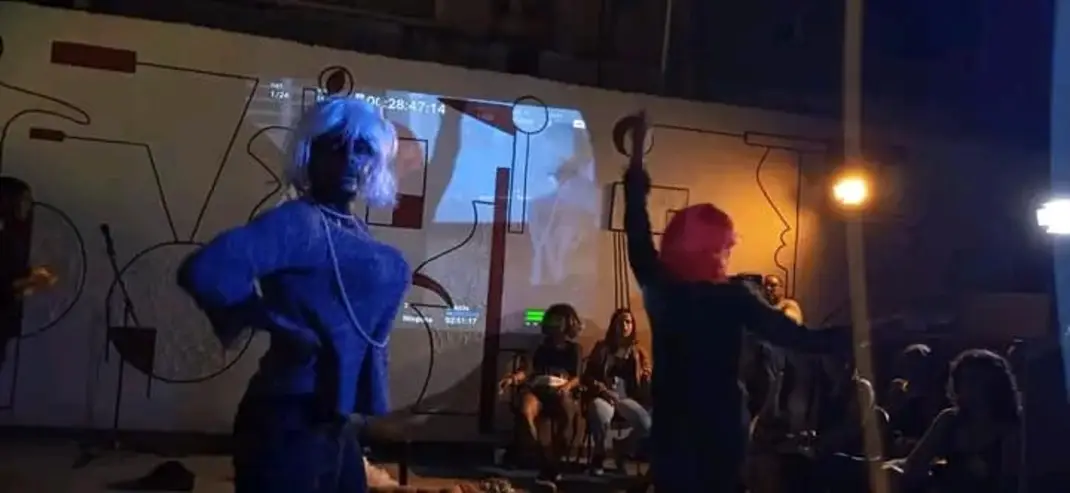
The intensity of the Piña Colada, added to its wide spectrum, requires the rest of reason to assess its scope, its achievements and its challenges, since in twenty years of struggling this festival has definitively become enthroned as the most anticipated cultural event by the people of Ciego de Ávila.
In 20 years of many more successes than uncertainties, the massive communion with the fusion music festival says a lot about its cohesive power, its ability to integrate the unity of the diverse, to move from the most popular to the most cultured, and to turn not to succumb to the collective sociopathy that annuls our free will and condemns us to the most subtle submission, to the magnet of all the plagues that can occur: modern ignorance, meaningless letters, empty clothes, half smiles and the virtual attempts.
An example of such a categorical conclusion was the incursion into the Piña Colada by the Scenic Experimentation Group the black box with its proposal Ofelia, in the House of the Young Creator of the Saíz Brothers Association in Ciego de Ávila.
The setting takes place with live video cameras, even from the moment the public enters, in a frank allusion to cell phones or mobiles as an essential outfit for apocalyptic or those integrated into modern opium, say virtual reality or collective narcissism.
Besides, at the end of the show, some of the witnesses from the physical group are chosen to "virtualize" their opinions in just 30 seconds, like a podcast or reel on any popular digital platform.
Ofelia is a text and staging by Juan Edilberto Sosa Torres, where from Hamlet, a classic by William Shakespeare, the history of power is defragmented and synthesized at the same time from a female character: Ofelia.
In Cuba, there are plenty of examples of such noble and meritorious commitment. I only evoke two: Cirilo Villaverde's Cecilia Valdés and Virgilio Piñera's Electra Garrigó, whose common denominator transcends the libidinous act of eating one's favorite fruit that is, biting into the apple of Eden.
Here, the women (the Ophelias, the Cecilias, the Electras) reflect Homeland: platform, courts and tribulation, the price of shared silence, since faith is a necessary evil to build a nation.
And in that loud claim the peals of a pylon stand out that seems to me an oracle, sanctuary, voice, polyphony of an idea that floats like Shakespeare's Denmark, in which the trenches are made of flowers and power.
"In the kingdom of Denmark/ there is a meadow with dried sunflowers and daisies." Where, no?, I add.
With sunflowers and dried daisies, the lights and shadows of universal patriarchy are also interwoven in harmonious dialectical unity, including its historical background and its spiral evolution.
In fact, in Ofelia dangerous stigmas such as the racism of our great-grandparents (still in force without a doubt), the objectification of women and crude political manipulation in its most sociological sexist expression are more than condemned.
"Like a war cry after the lament", Ofelia is also renewal and hope, because we are all Ofelia, Cecilias, Electras and Calibanes who, like the wild servant of Shakespeare's Prospero from the Tempest, still have much to contribute to the balance of the world.
As divergent as creative thought are the inductions and abductions that a work of art suggests to us; reason for which I cannot fail to establish a parallel between the festivities from Camagüey of Teatro del Viento with the Santiago de Cuba plague of “the black box”: both climaxes are catharsis, exorcism, and supreme revelations.
Both the plague and the festivities are powerful magnets, where power is an excuse, where the majority succumb like rats after the melodious chords of the Pied Piper of Hamelin.
At the service of Ofelia and her river Avon, all the incomplete heads die or are born in her waters whose end is always the sea, because "Ophelia is the river Avon / is the womb made life / is the diverse."
Since the head is an incomplete event, without the cultivation of the spirit and virtuous utility, an axiom of José Martí resounds in the stage gallery like a flash of light:
"Being educated is the only way to be free"
Thanks to Piña Colada for giving us this scenic privilege, in which music is another protagonist of the performance with only four songs in exquisite communion with Ofelia's dramaturgy: I am the fire that burns your skin, by Argentinean Ricardo Camino; Hasta la raíz, by the Chilean Natalia Lafourcade; Las mañanitas by the Mexican Manuel Ponce and Lo material by the Cuban Juan Formell.
All this with authentic voices of the actors themselves, in full choral brotherhood, with live interpretation, accompanied by a piano, a saxophone and Calibanes percussion, including the chords of the pylon.




